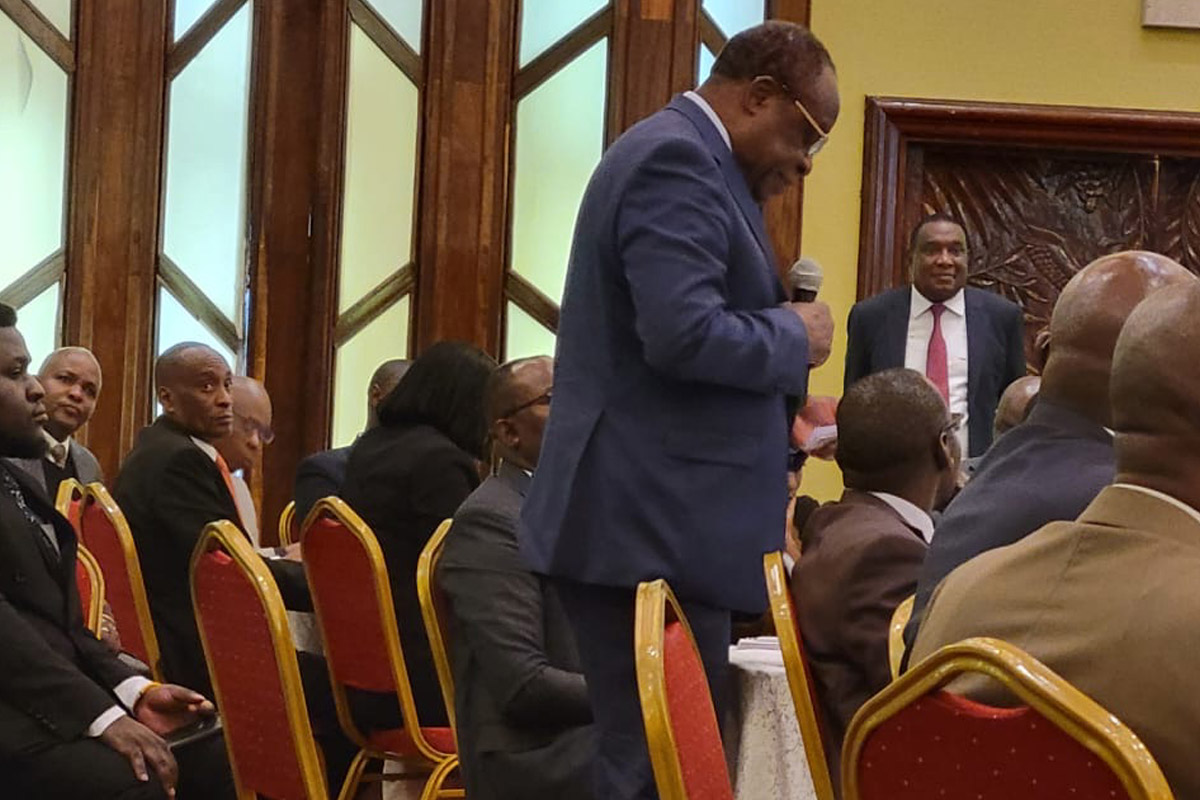On August 2 2024, the Vice Chancellor, Prof. Laban P. Ayiro attended the official launch of the Public Consultation on the development of the Draft Correctional Services Policy and Bill, held at Safari Park Hotel.
The launch was presided over by the Prime Cabinet Secretary, Foreign and Diaspora Affairs CS and Acting Interior CS Musalia Mudavadi.
The CS said the consultations will aid in the engagement of key players with a view to improving congestion and poor living conditions for both offenders and staff.
In his remarks, Prof. Ayiro highlighted key areas for inclusion in the Correctional Services Legal & Policy Framework, including:
- Human rights compliance
- Rehabilitation and integration of convicts
- Improved infrastructure in tcorrection centers (centers of hell)
- Legal reforms
- Incorporate staff training and welfare
- Alternative sentencing as a thrust in the legal framework
- Inclusion of challenges and budgetary framework
Speaking at the same forum, State Department for Correctional Services Principal Secretary Dr. Salome Beacco congratulated the Technical Committee that was appointed to develop the legal framework. She said the State Department for Correctional Services sits at the core of the national security and the wider criminal justice sector as it is the Government Agency responsible for coordinating the implementation of Correctional Policy and programmes.
The consultations, which will continue over the next one month, will seek to consolidate stakeholders’ views on the proposed Correctional Services Bill and Policy aimed at reviewing and consolidating all laws related to correctional services and offender management.
The proposals contained in the Correctional Services Bill and Policy which will be subjected to public participation include the rights and obligations of offenders, duties and responsibilities of Prison and Probation officers, welfare programs for prison and probation officers, management of both custodial and non-custodial offenders, aftercare and resettlement, internal complaints mechanism, among others.
 Daystar University
Daystar University















John Doe
Jan 08, 2021 14:41 pmLorem ipsum dolor sit amet, consectetur adipiscing elit. Etiam vitae odio ut tortor fringilla cursus sed quis odio.
ReplyHelen Doe
Jan 08, 2021 14:41 pmMaecenas tempus, tellus eget condimentum rhoncus, sem quam semper libero, sit amet adipiscing sem neque sed ipsum.
ReplyAnna Doe
Jan 08, 2021 14:41 pmCras ultricies mi eu turpis hendrerit fringilla. Vestibulum ante ipsum primis in faucibus orci luctus et ultrices posuere cubilia.
Reply